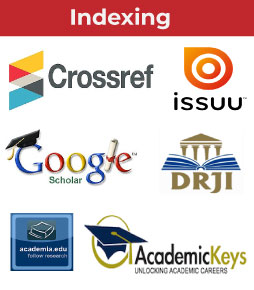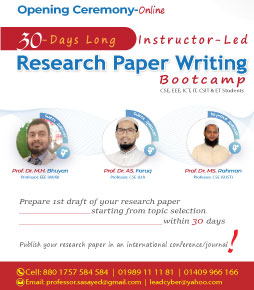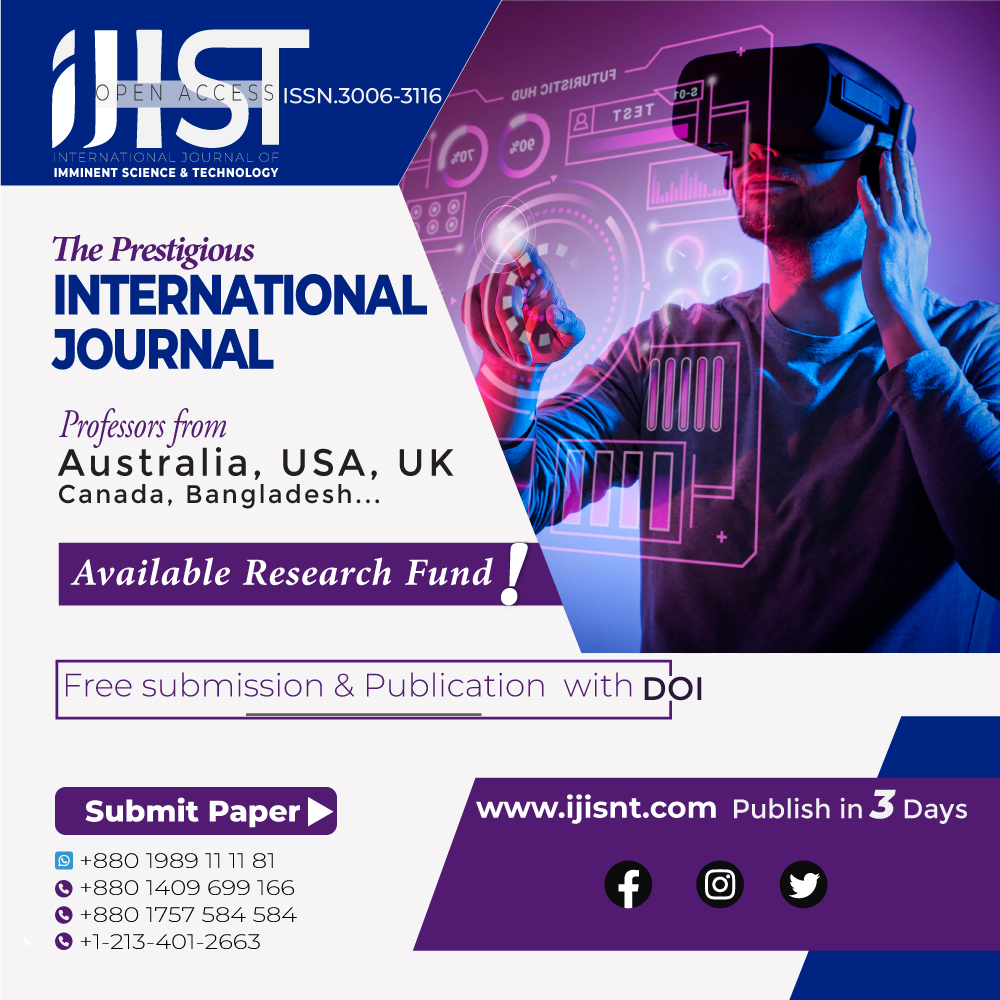Artificial Intelligence-Enabled Transformation in Bangladesh: Overcoming Challenges for Socio-Economic Empowerment.
AI-Driven Transformation in Bangladesh
DOI:
https://doi.org/10.70774/ijist.v1i1.7Keywords:
Artificial Intelligence, Bangladesh, socio-economic challenges, transformative technologies, socio-economic empowerment, AI-driven innovations, sustainable development.Abstract
This research paper delves into Bangladesh's AI landscape, focusing on socio-economic empowerment. Despite notable AI strides, critical gaps persist, necessitating deeper investigation. It addresses impact assessment, policy evaluation, skill development, and community engagement, vital for actionable insights. Bangladesh grapples with socio-economic challenges—widespread poverty, healthcare disparities, and educational hurdles—highlighting the urgency for innovative solutions. The paper outlines ongoing AI initiatives across agriculture, healthcare, education, and governance, backed by government policies like the "AI Strategy 2030" and substantial investments. However, integrating AI faces multifaceted barriers—infrastructural limitations, skill shortages, ethical concerns, and financial constraints—demanding collaborative efforts. A mixed-methods approach, incorporating interviews, surveys, and case studies, revealed insights. Policymakers acknowledged significant government investment in AI infrastructure, regulatory support, collaboration, education, and funding's impact. Industry experts emphasized high AI adoption, positive productivity impacts, data security efforts, and workforce integration. A survey revealed workforce interest in AI education but a gap in practical proficiency and access barriers. Graphical representations depicted varied AI usages, global adoption trends, and market projections, highlighting AI's transformative potential. Case studies showcased successful AI implementations in agriculture, healthcare, finance, education, and governance, yielding increased yields, improved healthcare access, fraud reduction, enhanced learning, and efficient service delivery. Policy analysis highlighted existing strengths and areas for improvement, stressing robust ethical guidelines, capacity-building, resource allocation, and enhanced coordination for effective implementation. In conclusion, this paper provides insights guiding stakeholders in leveraging AI for sustainable socio-economic development in Bangladesh.






